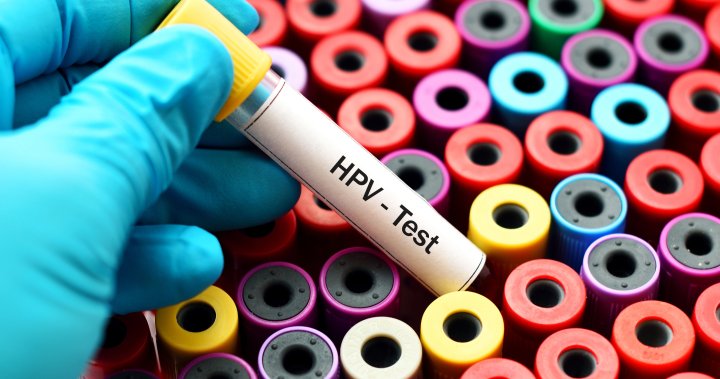The Canadian Cancer Society is calling on Health Canada to approve self-testing for cervical cancer amid an increase in cases among women in the country.
“After a 30-year decline, cervical cancer is now the fastest increasing cancer in females, with most cases occurring in women under 50 years of age,” Ciana Van Dusen, advocacy manager of prevention at the CCS, said during a parliamentary meeting of the standing committee on health Thursday.
“This rise is explained by lower uptake in screening and HPV vaccination because virtually all cervical cancers are due to the human papillomavirus infection.”
Van Dusen said this trend can be reversed through prevention and early detection.
“The programmatic shift from Pap to HPV testing as the primary method of cervical screening, with the option of self-testing can better detect cervical cancer and reduce barriers due to socio-economic factors or lack of access to a health care provider,” she told MPs in French.
“We are calling on Health Canada to approve self-testing,” Van Dusen said. “We know that there are provinces that are going forward with or without this approval, and that’s B.C. and P.E.I.”
“However, other provinces and territories have said that this is a barrier to their ability to bring this test to Canadians, so that is something very tangible today that we can do to make it more accessible,” she added.

HPV is one of the most common sexually transmitted infections in Canada, with as many as 75 per cent of sexually active adults estimated to develop it at some point in their lives.
Get the latest Health IQ news.
Sent to your email, every week.
In 2022, there were 1,730 new cervix uteri cancer cases and 740 new deaths reported in the country, according to data recently published by the World Health Organization (WHO).
For 2023, an estimated 1,550 cervix cancer cases and 400 deaths were projected, government data showed.
Several provinces in addition to P.E.I and B.C. are looking to phase out the Pap test in favour of the HPV test for cervical cancer screening.
The move towards HPV testing as the first stage in a cervical cancer screening program would not only help better detect precancer or cancer but could cut overall costs as it is done less frequently, experts have previously told Global News.
Van Dusen said whilst many provinces and territories prepare for this change, the swabs used for the HPV tests currently have an indication that they must be done by a health-care provider.
“Health Canada has an opportunity to update this indication and remove this barrier by providing at home tests,” she said. “We recommend that Health Canada make this update promptly.”

When asked about Health Canada’s stance on HPV testing replacing the Pap test in the country in July, the Public Health Agency of Canada told Global News it “recognizes the importance of screening to prevent cervical cancer, and is aware that a number of provinces in Canada are considering a shift to the use of HPV screening.”
It noted, however, that the provinces and territories are primarily responsible for the administration of health services, including testing and medical advice.
Guidelines published in the Canadian Medical Association in Sept. 2023 suggest self-screening tests for HPV could be one way to improve access for those otherwise facing barriers.
Currently, the self-test is only utilized by some jurisdictions, including B.C. which launched the first at-home HPV cervix screening pilots in 2021.
New Brunswick also announced last year that as part of its transition to HPV tests, self-sampling will eventually be introduced as well.
— with files from Global News’ Sean Previl
© 2024 Global News, a division of Corus Entertainment Inc.










